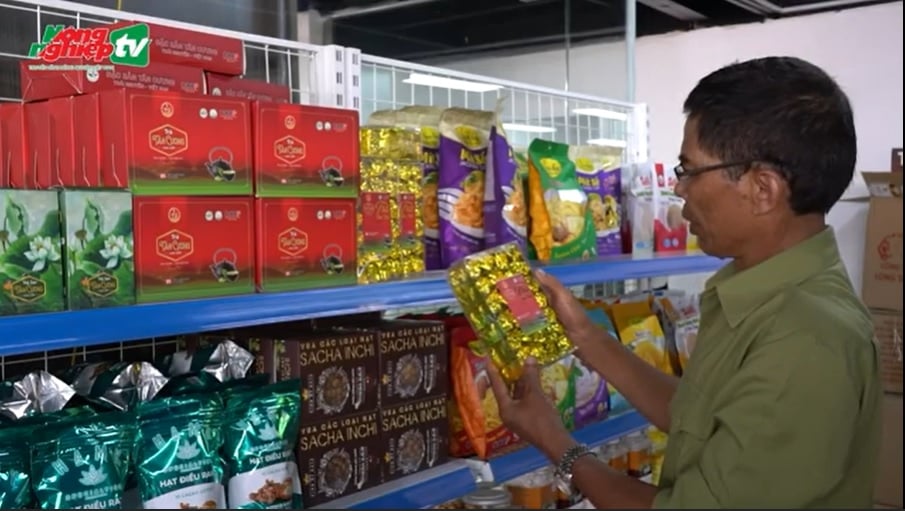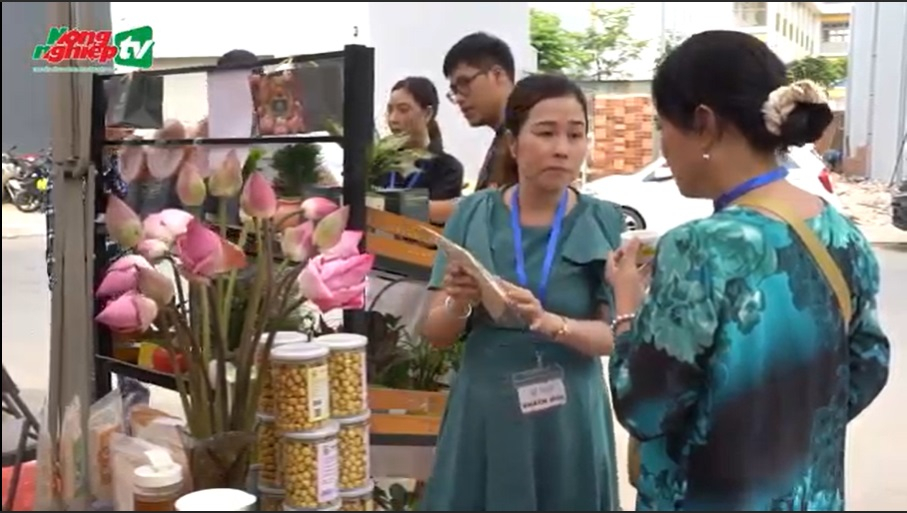May 17, 2025 | 10:41 GMT +7
May 17, 2025 | 10:41 GMT +7
Hotline: 0913.378.918
May 17, 2025 | 10:41 GMT +7
Hotline: 0913.378.918

The One Commune One Product (OCOP) program has had a strong spread, creating more and more confidence for consumers about OCOP products.
Implemented nationwide since 2018, in the past five years, the One Commune One Product (OCOP) program has achieved many positive results. By the end of 2022, according to the assessment of the Ministry of Agriculture and Rural Development, 8,689 OCOP products from 4,479 OCOP subjects had been certified with 3 stars or more.
Although just starting, the OCOP program, with strong support from the central to local levels, has had a strong spread, creating more and more confidence for consumers. Especially OCOP products have been becoming the pride of the homeland, the pride of each subject, community, and local people.
With OCOP-certified products such as centella asiatica powder, fish mint powder, perilla powder, katuk powder, etc., Ms. Nguyen Ngoc Huong, Director of Viet Nature Import Export Co., Ltd., said, "We are one of the first enterprises in Ho Chi Minh City to have OCOP-certified products, including potential products that are recommended to the central government for a 5-star rating. It is our pride."

Ms. Nguyen Ngoc Huong, Director of Viet Nature Import Export Co., Ltd., expressed her pride in having OCOP-certified products with Vietnam Agriculture News.
Thanks to their participation in the OCOP program, the subjects acknowledge that they have to show the quality of their products as well as their reputation in the products so that those products are not only products for consumers but also their pride when taken out. Thereby, the position of OCOP products in the market has been increasingly affirmed.
In addition, OCOP products are local specialties that have become the pride of that locality because they contain the characteristics of each region of that locality that cannot be found anywhere else.
Not only have OCOP products conquered domestic consumers, many have also conquered foreign customers through direct trade channels, tourism, or e-commerce.
Sharing about the journey of bringing OCOP products to customers, according to Ms. Nguyen Ngoc Huong, for the first time, because customers did not have awareness of the product, the company went in the direction of development through direct trade channels. Specifically, her company brought products to directly invite consumers to try and experience them through the city's trade promotion programs and the state's sales support programs.
"We let them use our products directly, listen to them, get their feedback about products, and then perfect and continuously improve products. Currently, the company's products have been widely sold in Saigon Coop supermarkets nationwide, Central Food online system and have been exported to many countries," she said.

OCOP products are introduced to consumers through trade promotion programs.
Mr. Duong Hoang Quy, COB of Dai Gia Phu Group, said that “Currently, our communication about OCOP products is still weak, so I decided to open an e-commerce trading floor, namely OCOP247.vn, with the content of a hometown specialty store. My goal is to bring the products made by subjects into the hands of consumers. Consumers who want to buy good products but do not know where to buy them, through my e-commerce trading floor, will be able to access them.”
However, besides the successes, there are still shortcomings that can be encountered in the direction of OCOP Vietnamese product development. OCOP products currently have two product groups: the first is the mass product group, and the second is the products with the local nuances.
The mass product group means that it is large in number and available in many localities. This product group meets the criteria of scale but does not have its own local nuances because each locality can register to participate as long as it has a business registration and meets a number of other hard standards. In contrast, the second group of products, although not large-scale, creates a brand and unique feature for that locality’s OCOP product.
According to Dr. Ngo Thi Thu Trang, Deputy Director of the Saemaul Scientific Advice Council of the University of Social Sciences and Humanities - Vietnam National University Ho Chi Minh City, it is necessary to have an in-depth direction combined with community tourism, which will properly convey the values of OCOP products, which are the pride of the homeland and the pride of each business, community, and local people.
Translated by Huyen Vu Thu

(VAN) The 'For a Green National Environment' programme aims to promote a green lifestyle, support businesses in implementing ESG practices, and turn Net Zero commitments into concrete actions.

(VAN) Cold-barn systems efficiently manage environmental and temperature conditions, which aids in the prevention of respiratory diseases in pigs and protects them from the vectors that transmit African swine fevers.

(VAN) To tackle challenges, the project 'Addressing key technical bottlenecks in the grouper supply chain in Vietnam' has been underway since 2024.

(VAN) The project 'Disease-Resilient and Sustainable Cassava Production Systems in the Mekong Region', funded by the Australian Center for International Agricultural Research (ACIAR), is being implemented from 2024 to 2028.

(VAN) Data from 10,000 farming households will help professionalize production organization and support the implementation of the One Million Hectares Program for High-Quality, Low-Emission Rice Cultivation.

(VAN) FAO Director-General QU Dongyu marks International Day of Plant Health at NENA conference.

(VAN) Deputy Minister of Agriculture and Environment Hoang Trung affirmed that floriculture and ornamental plants are a growing industry that receives significant global attention.